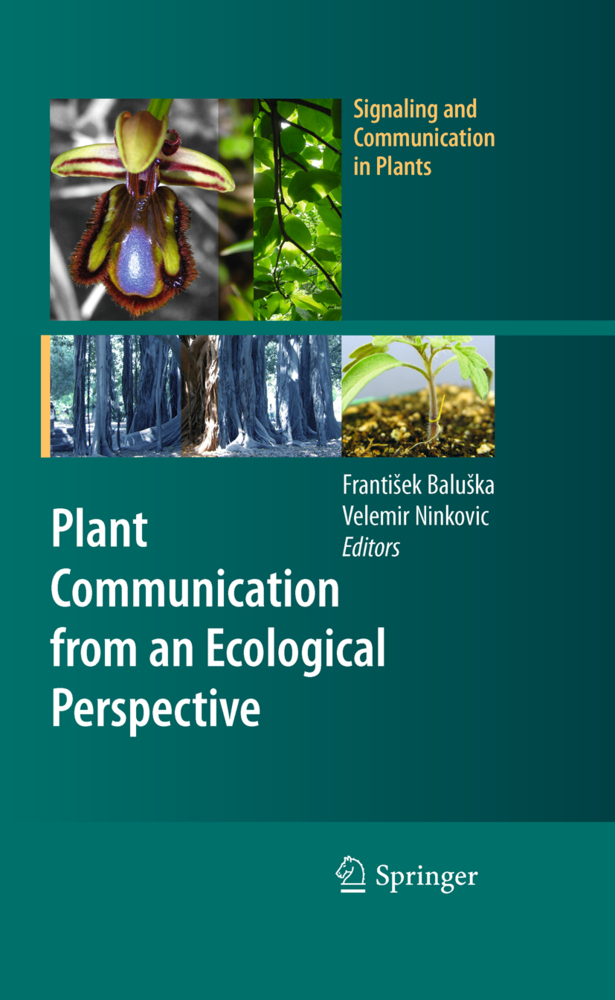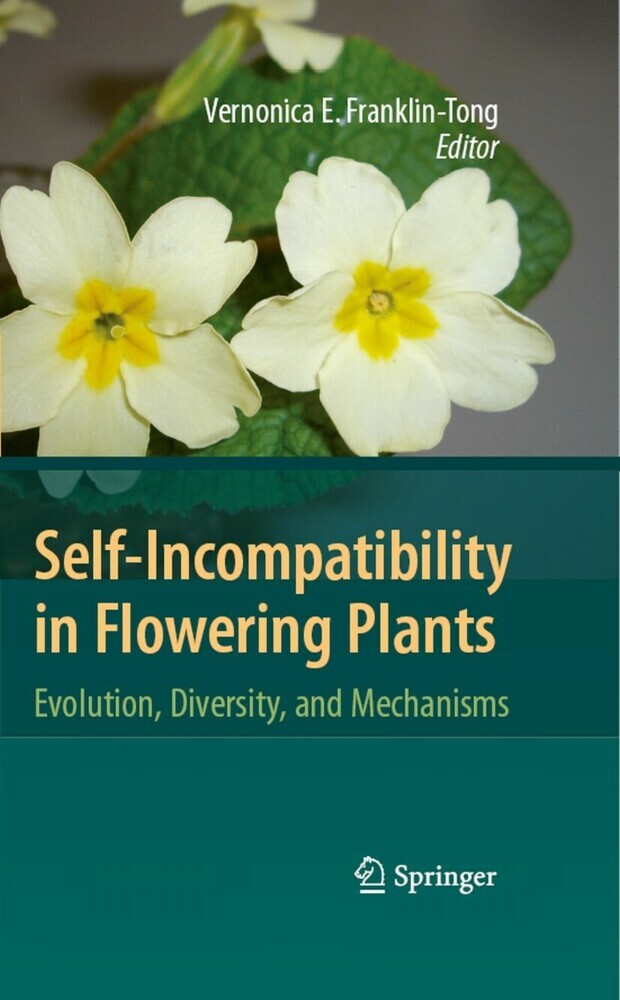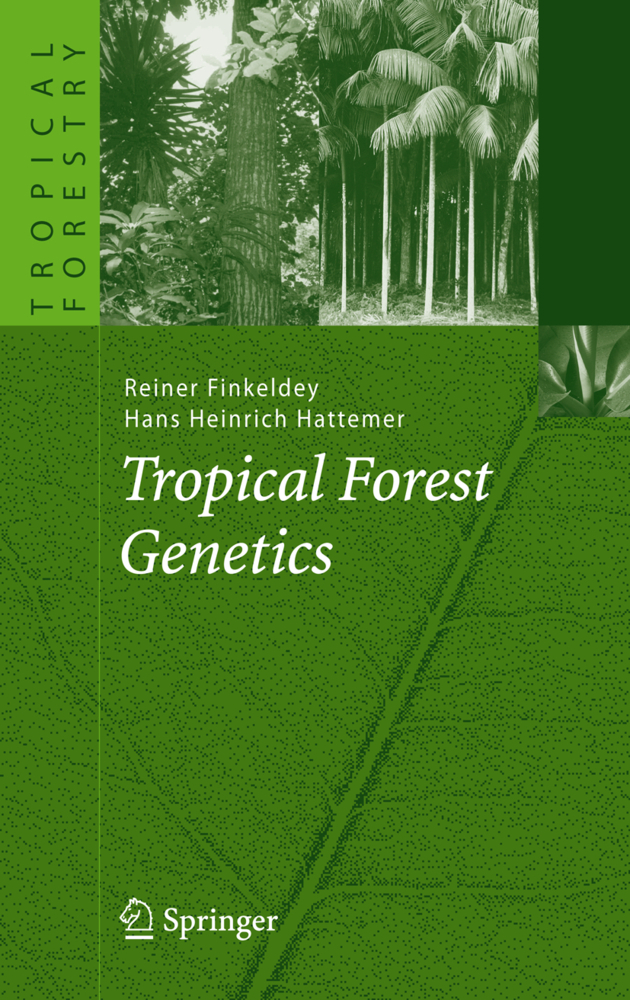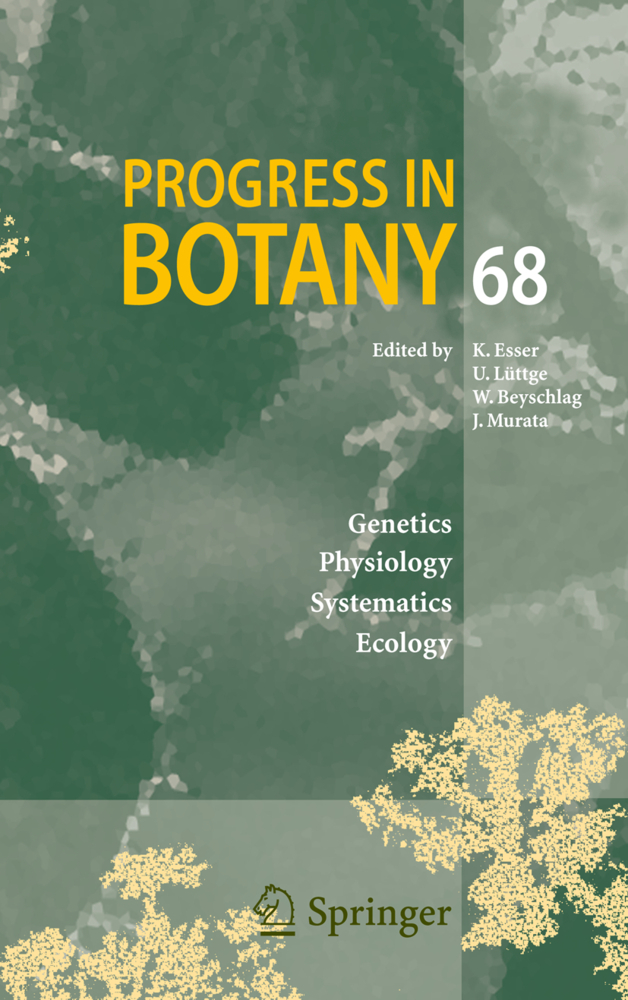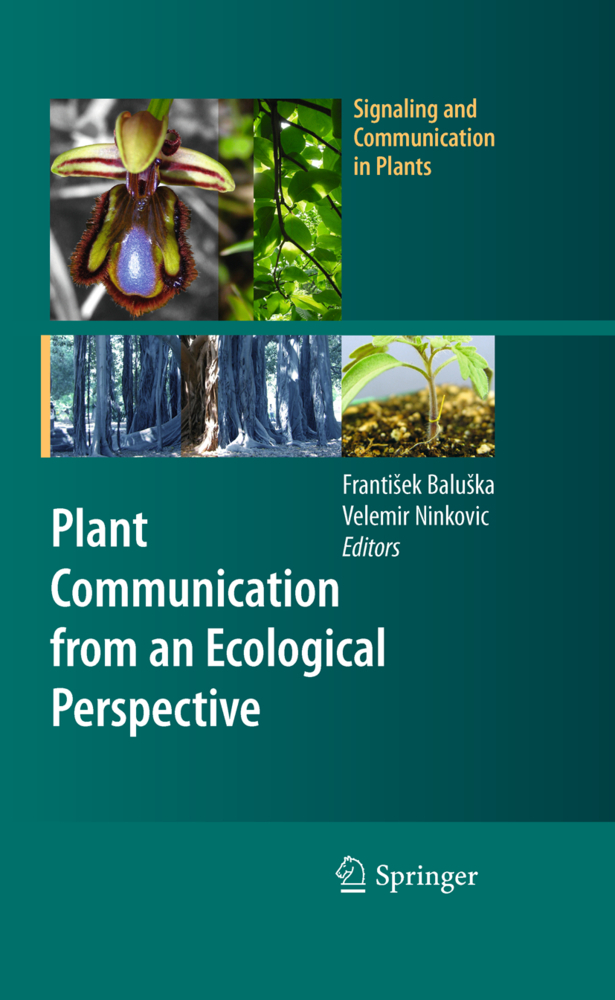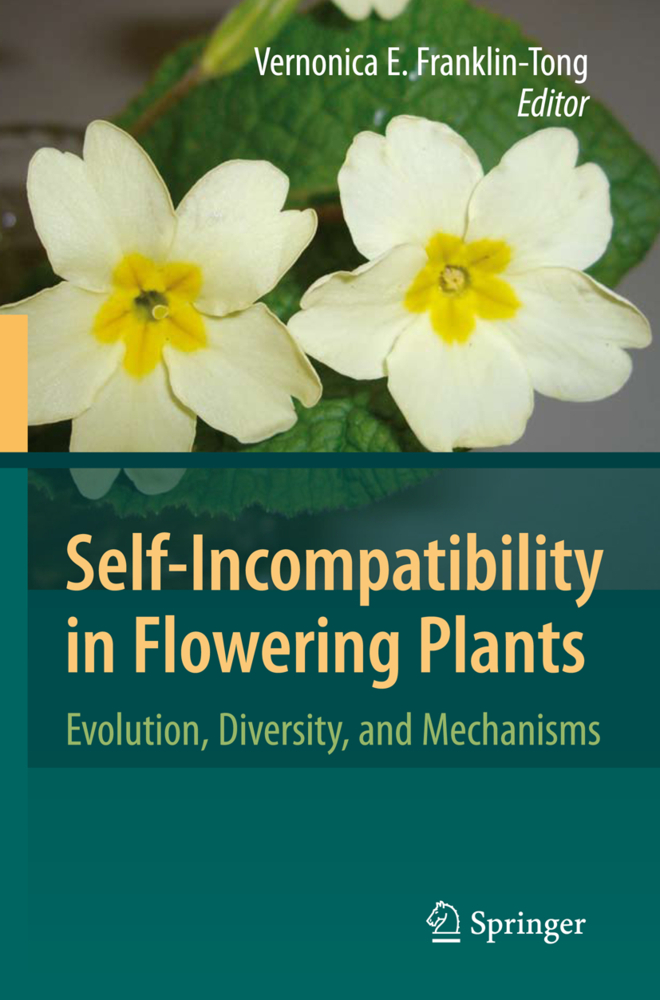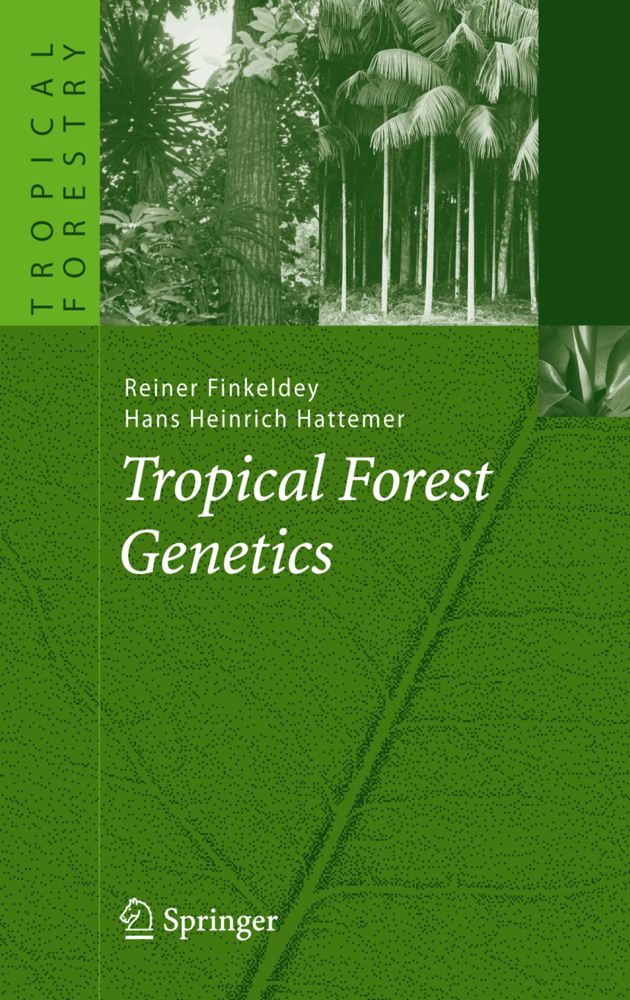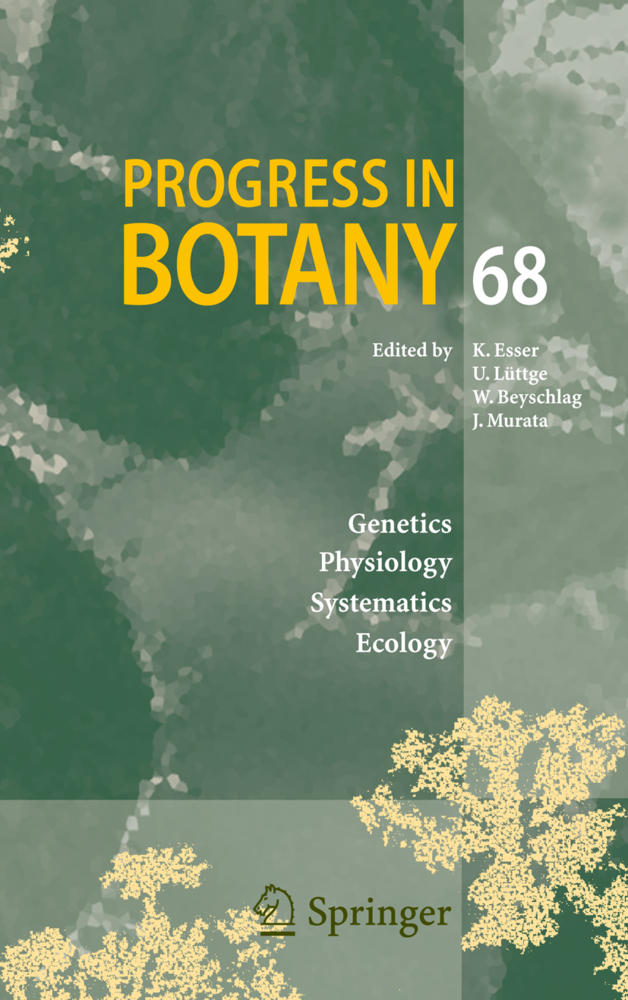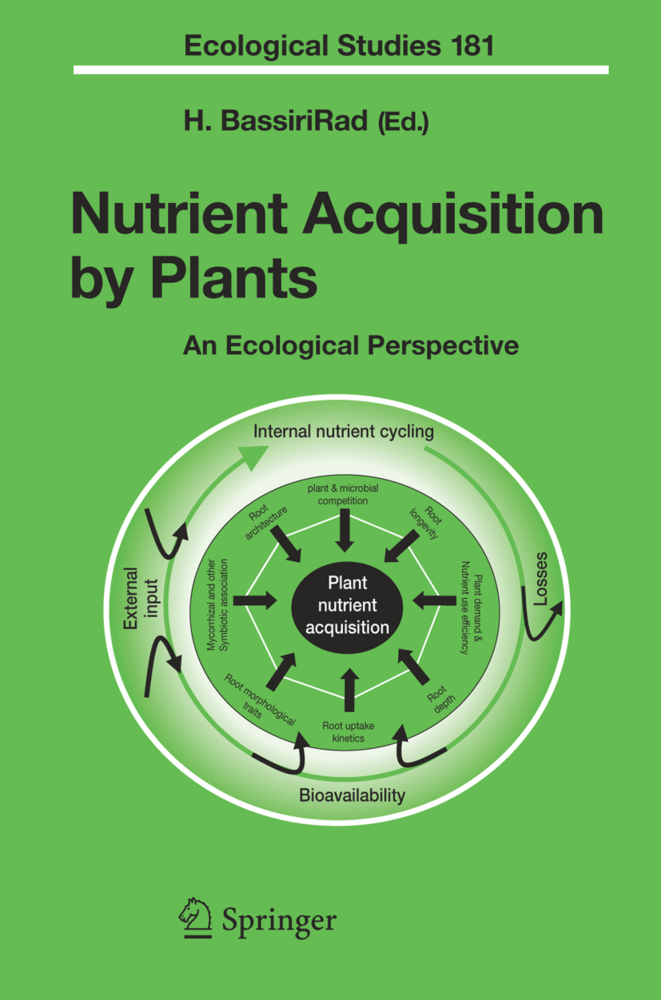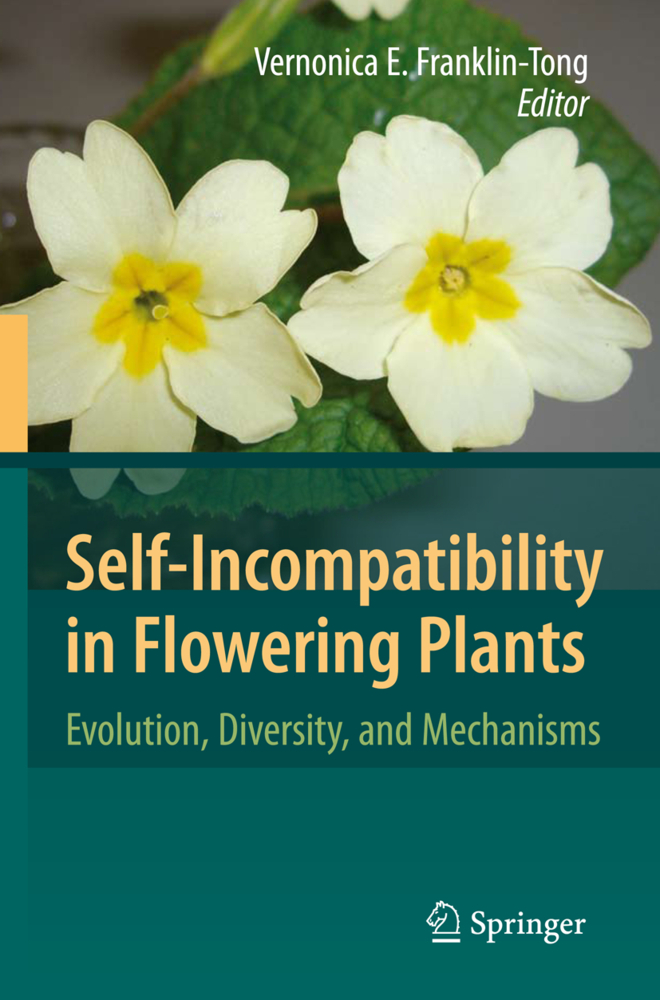Plant Communication from an Ecological Perspective
Plant Communication from an Ecological Perspective
Since the concept of allelopathy was introduced almost 100 years ago, research has led to an understanding that plants are involved in complex communicative interactions. They use a battery of different signals that convey plant-relevant information within plant individuals as well as between plants of the same species or different species. The 13 chapters of this volume discuss all these topics from an ecological perspective. Communication between plants allows them to share physiological and ecological information relevant for their survival and ?tness. It is obvious that in these very early days of ecological plant communication research we are illuminating only the 'tip of iceberg' of the communicative nature of higher plants. Nevertheless, knowledge on the identity and informative value of volatiles used by plants for communication is increasing with breath-taking speed. Among the most spectacular examples are sit- tions where plant emitters warn neighbours about a danger, increasing their innate immunity, or when herbivore-attacked plants attract the enemies of the herbivores ('cry for help' and 'plant bodyguards' concepts). It is becoming obvious that plants use not only volatile signals but also diverse water soluble molecules, in the case of plant roots, to safeguard their evolutionary success and accomplish self/non-self kin rec- nition. Importantly, as with all the examples of biocommunication, irrespective of whether signals and signs are transmitted via physical or chemical pathways, plant communication is a rule-governed and sign-mediated process.
Plant Defense Signaling from the Underground Primes Aboveground Defenses to Confer Enhanced Resistance in a Cost-Efficient Manner
Allelopathy and Exotic Plant Invasion
Volatile Interaction Between Undamaged Plants: A Short Cut to Coexistence
Volatile Chemical Interaction Between Undamaged Plants: Effects at Higher Trophic Levels
Within-Plant Signalling by Volatiles Triggers Systemic Defences
Volatile Interactions Between Undamaged Plants: Effects and Potential for Breeding Resistance to Aphids
Communication in Ant-Plant Symbioses
Photosensory Cues in Plant-Plant Interactions: Regulation and Functional Significance of Shade Avoidance Responses
Global Atmospheric Change and Trophic Interactions: Are There Any General Responses?
Exploiting Plant Signals in Sustainable Agriculture
Plant Volatiles: Useful Signals to Monitor Crop Health Status in Greenhouses.
Evolutionary Ecology of Plant Signals and Toxins: A Conceptual Framework
The Chemistry of Plant SignallingPlant Defense Signaling from the Underground Primes Aboveground Defenses to Confer Enhanced Resistance in a Cost-Efficient Manner
Allelopathy and Exotic Plant Invasion
Volatile Interaction Between Undamaged Plants: A Short Cut to Coexistence
Volatile Chemical Interaction Between Undamaged Plants: Effects at Higher Trophic Levels
Within-Plant Signalling by Volatiles Triggers Systemic Defences
Volatile Interactions Between Undamaged Plants: Effects and Potential for Breeding Resistance to Aphids
Communication in Ant-Plant Symbioses
Photosensory Cues in Plant-Plant Interactions: Regulation and Functional Significance of Shade Avoidance Responses
Global Atmospheric Change and Trophic Interactions: Are There Any General Responses?
Exploiting Plant Signals in Sustainable Agriculture
Plant Volatiles: Useful Signals to Monitor Crop Health Status in Greenhouses.
Baluska, Frantisek
Ninkovic, Velemir
| ISBN | 978-3-642-26366-8 |
|---|---|
| Artikelnummer | 9783642263668 |
| Medientyp | Buch |
| Copyrightjahr | 2013 |
| Verlag | Springer, Berlin |
| Umfang | VIII, 252 Seiten |
| Abbildungen | VIII, 252 p. 8 illus. |
| Sprache | Englisch |

